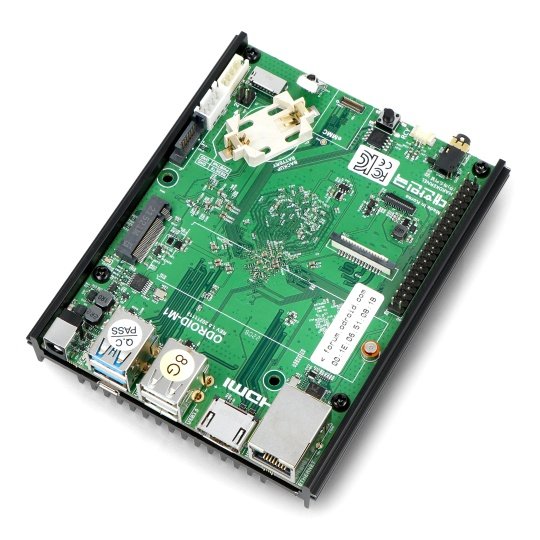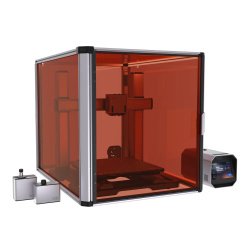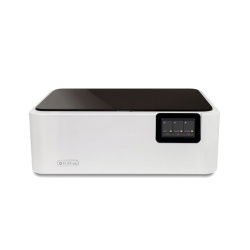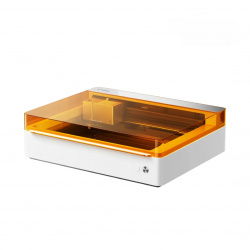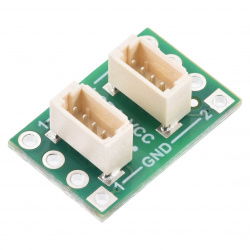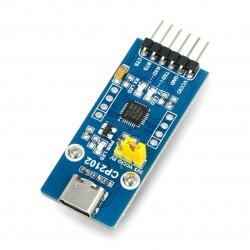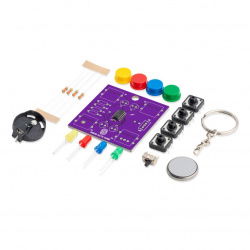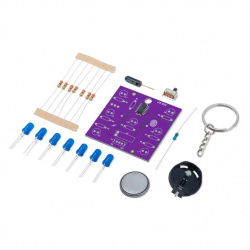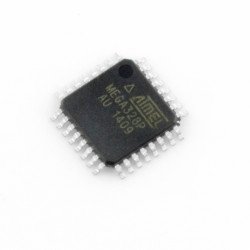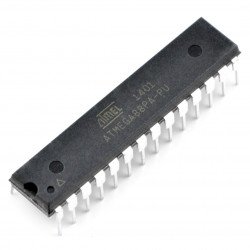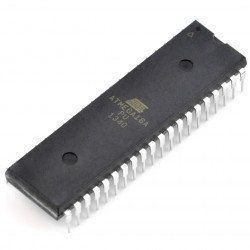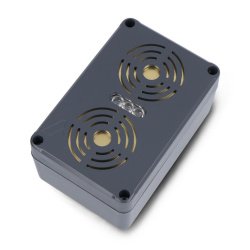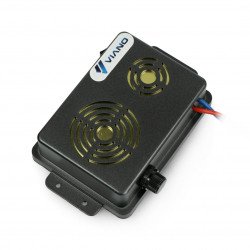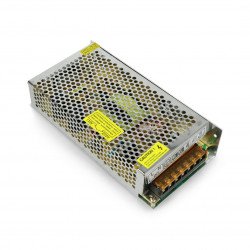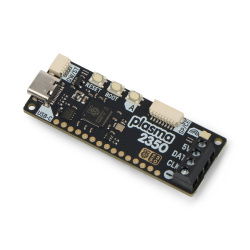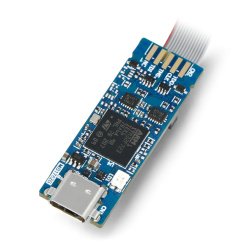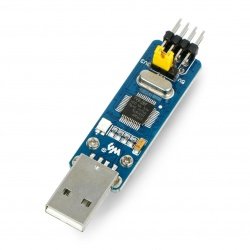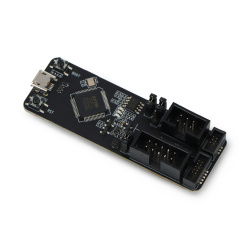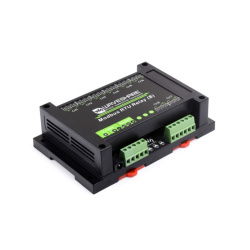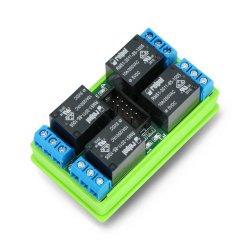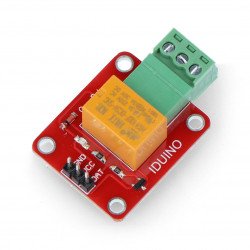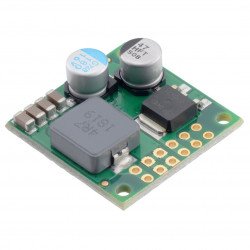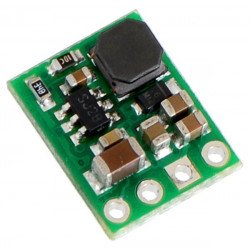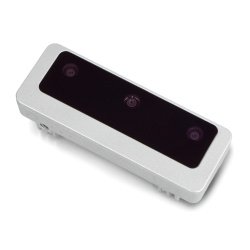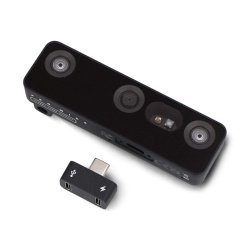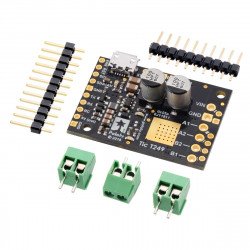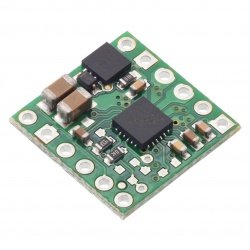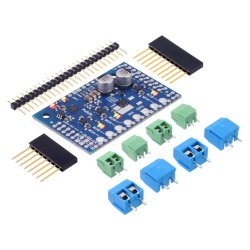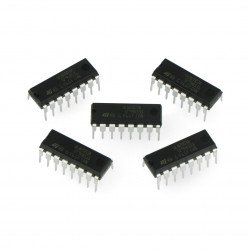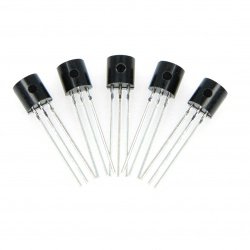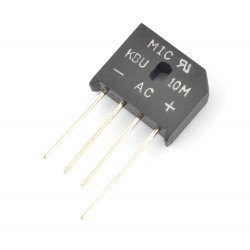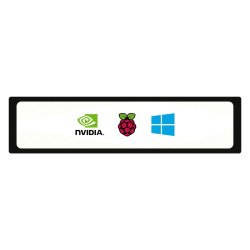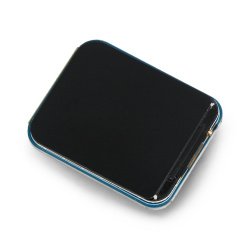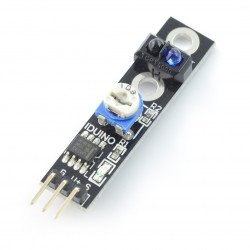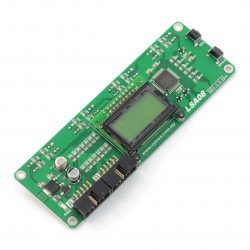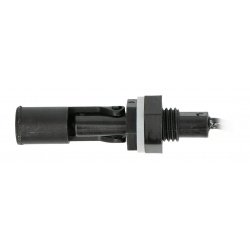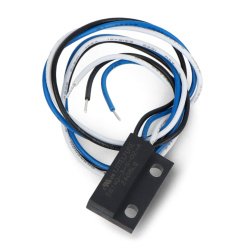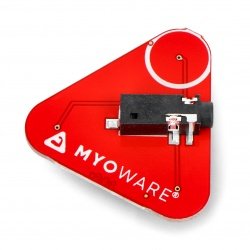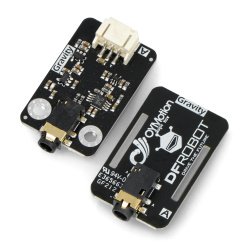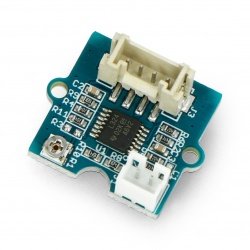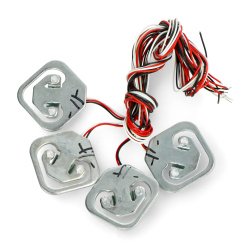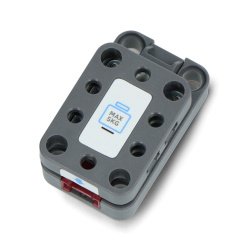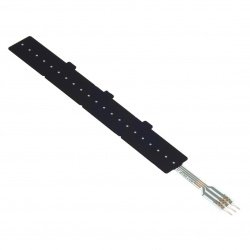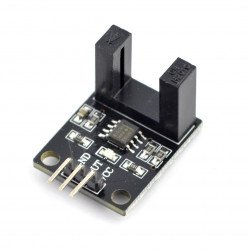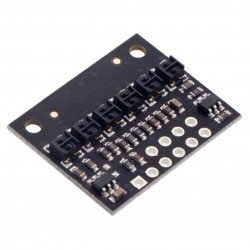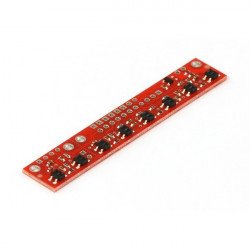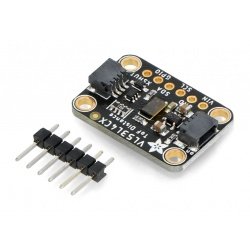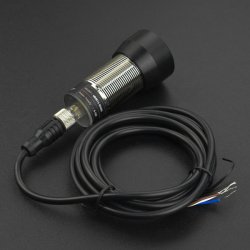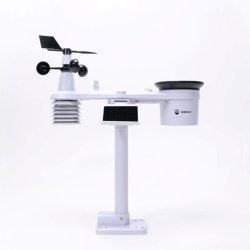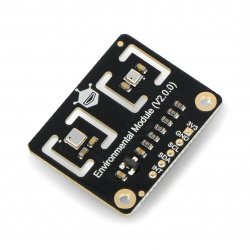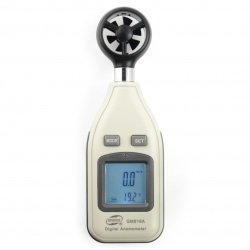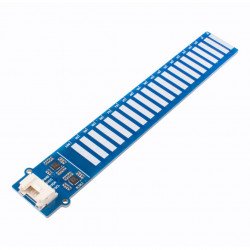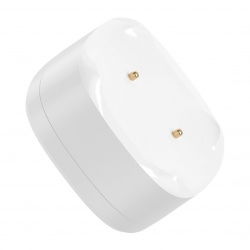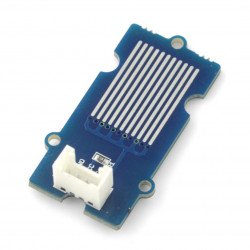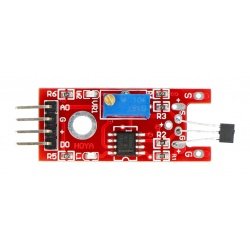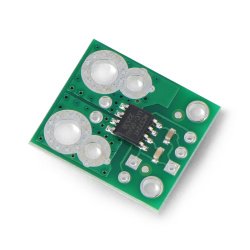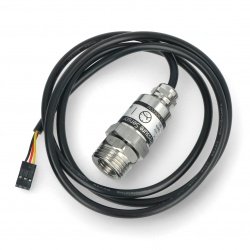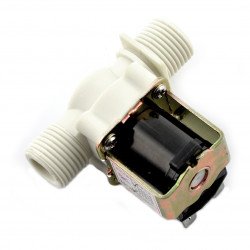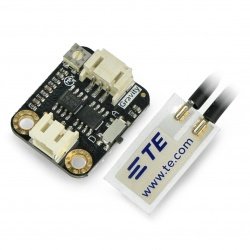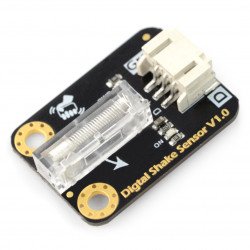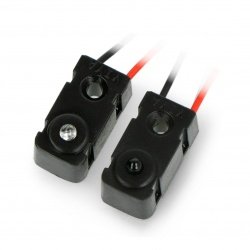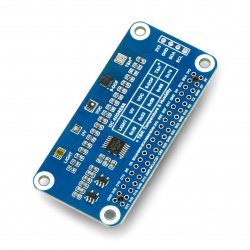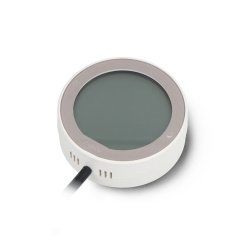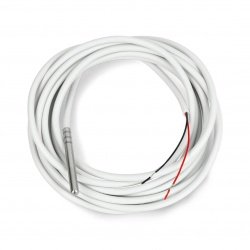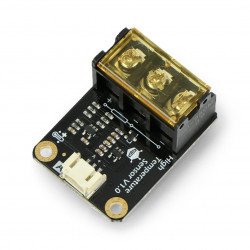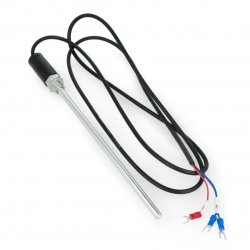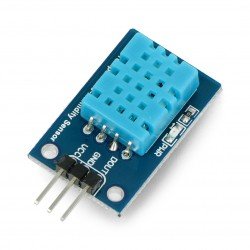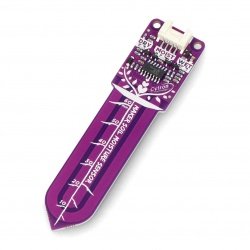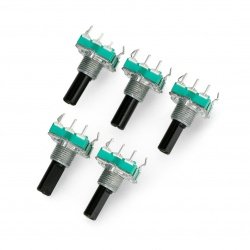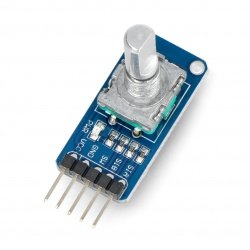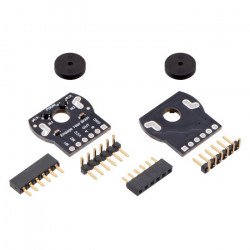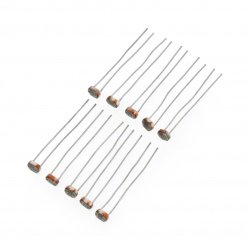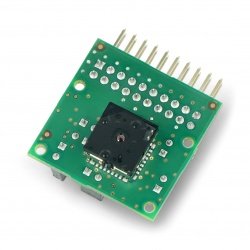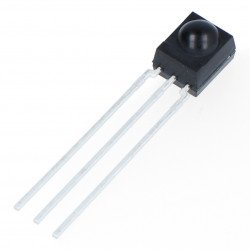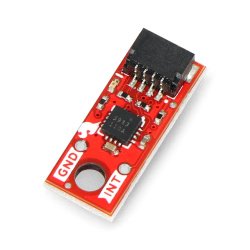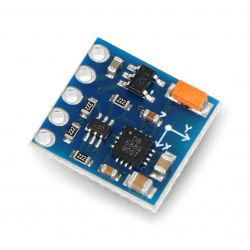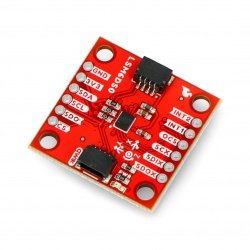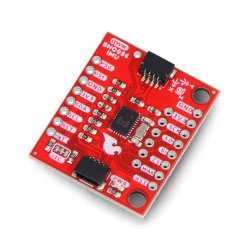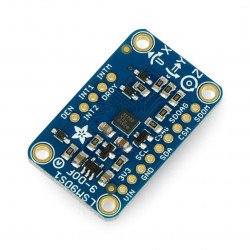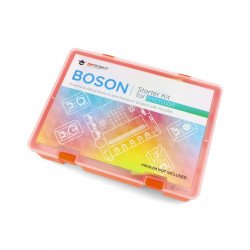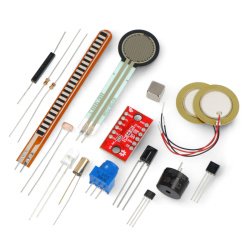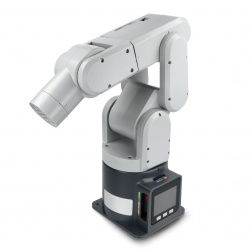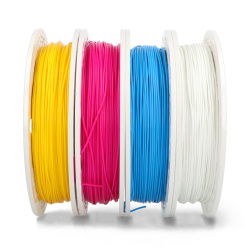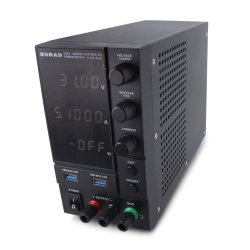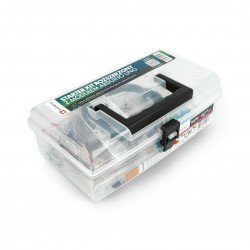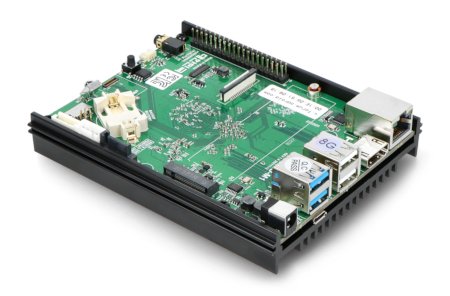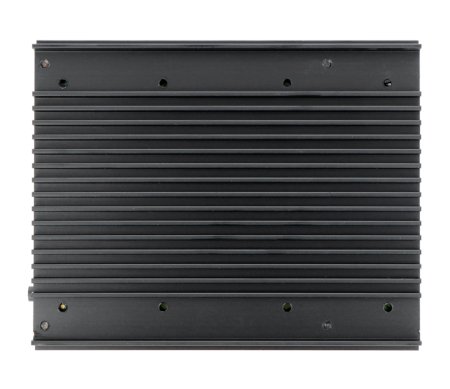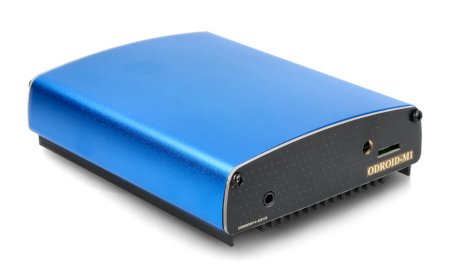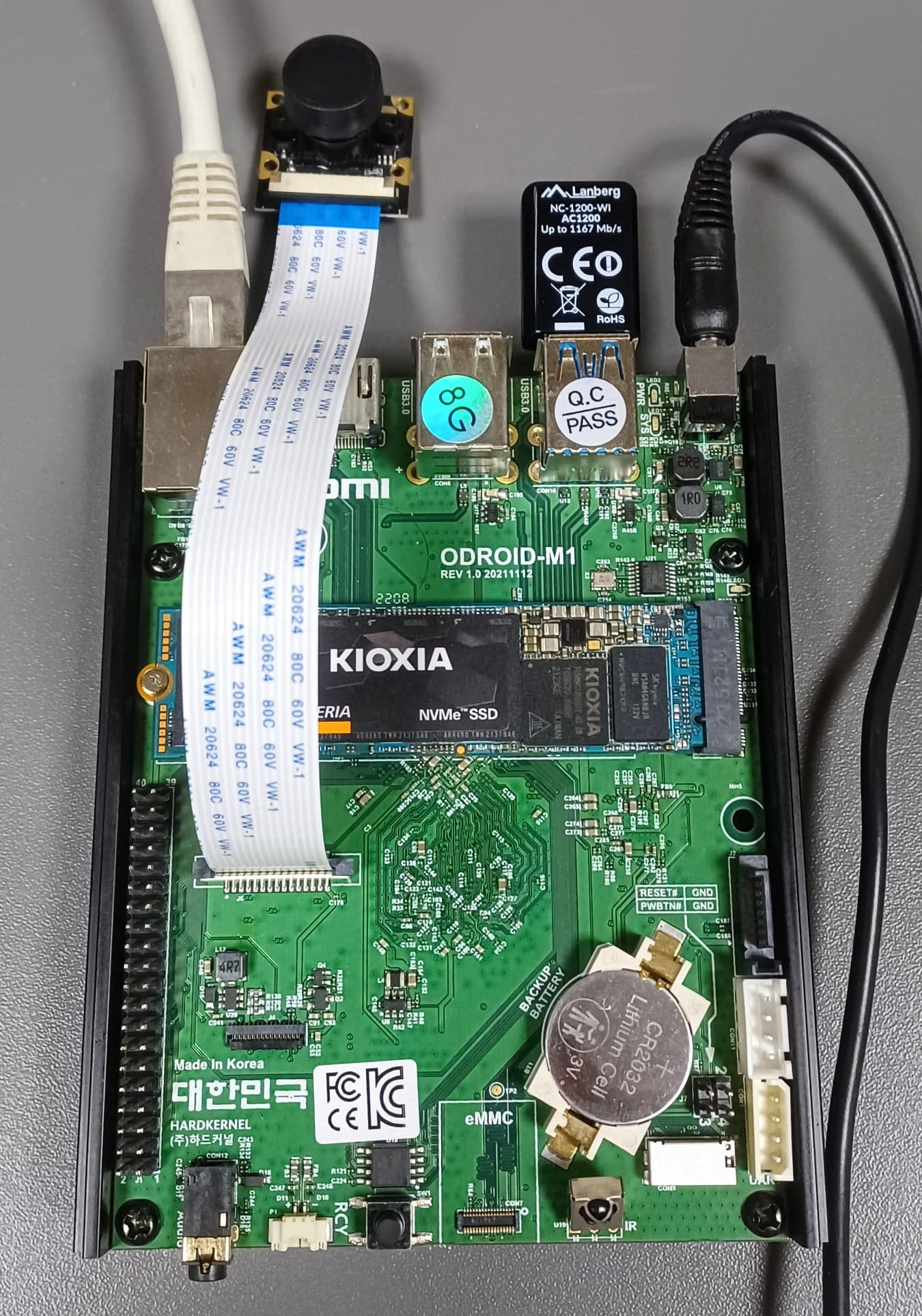- Discontinued product
Product description: Odroid M1 - minicomputer with Rockchip RK3568B2 processor + 8 GB RAM
Odroid M1 is a single board minicomputer equipped with a wide range of interfaces. The brain of the board is the Cortex-A55 quad-core processor (with low energy consumption and high performance) and the Mali-G52 graphics processor. Odroid M1 is also equipped with 8 GB of RAM and a connector for eMMC memory and microSD cards , Ethernet, HDMI and USB 3.0. An efficient heat sink is placed around the module, which helps to cool the entire system during operation.
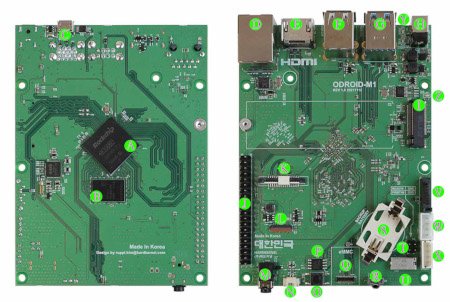
The arrangement of elements on the Odroid M1 board.
Our offer also includes other Odroid modules, memory cards for the board and other useful accessories. Check!
The arrangement of elements on the board
- Rockchip RK3568B2 processor
- LPDDR4 RAM
- Micro USB 2.0 port
- RJ45 Ethernet port (10/100/1000 Mb / s)
- HDMI 2.0
- USB 2.0 port x2
- USB 3.0 port x2
- DC jack for DC power supply
- M.2 NVMe M-Key PCIe3.0 2-lane
- GPIO x40 pins
- MIPI CSI 2 Lane
- MIPI DSI 4 Lane
- 3.5mm headphone jack
- Mono speaker output (1.3 W into 8 Ω load)
- SPI recovery switch
- SPI Flash 16 MB
- EMMC module socket
- Infrared receiver
- RTC battery holder
- Reset jumper and power jumper
- MicroSD memory card slot
- SATA3
- SATA power (5V only)
- UART for the system console
- System LED indicators x2
- M.2 LED indicator
Programming M1
The Petitboot program pre-installed in the SPI Flash memory helps you to easily and quickly manage different versions of the operating system and supports booting from microSD, eMMC, NVMe, SATA and USB mass storage devices. Moreover, since it is possible to install the operating system online via the network, the complicated procedure of downloading and flashing the operating system image has been significantly reduced.
Machine learning
The Odroid M1 board has a neural network processing unit (NPU) that provides up to 0.8 TOPS. On the Ubuntu Linux operating system, the manufacturer launched various models of TensorFlow Lite and ONNX.
Additional storage
On the Odroid board, you can directly install an M.2 NVMe mass storage device with dimensions of 22 mm x 80 mm. The M.2 connector has a 2-channel PCIe 3.0 configuration that provides fast sequential access with a performance of 1600 MB / s. Please note that M.2 SATA storage devices cannot be used . M.2 slot only supports PCIe (M-Key) interface.
Odroid also has a single native SATA 3.0 port (not USB), which allows you to connect a 2.5 "hard drive or SSD NAND storage device. The SATA interface provides sequential access speed of almost 500 MB / s. To use 3.5" a separate external 12 V SATA power supply is required for the hard drive.
Housing designed for the M1
In our offer you will also find a special case prepared with the Odroid M1 in mind. It has an elegant appearance, provides protection against mechanical damage and dirt, and is at the same time extremely efficient - it effectively cools the minicomputer even during high processor load. The housing is blue and made of metal. It has a structure that allows it to be securely attached to the heat sink frame of the minicomputer. The front and rear covers are made of gold-plated printed circuit boards.
Technical specification of Odroid M1
- Processor: Rockchip RK3568B2
- L1 instruction cache: 32 KB, 4-way association, 64 bytes of lines, shared by 1 processor
- L1 data cache: 32 KB, 4-way association, 64 bytes of lines, shared by 1 CPU
- L3 data cache: 512KB, 16-way association, 64 bytes line, shared by Quad-Core Cortex-A55 processor (1.992 GHz)
- ARMv8-A architecture with Neon and Crypto extensions
- Mali-G52 MP2 graphics processor with 4 execution engines (650 MHz)
- NPU :
- 0.8Tops / INT8, integrated high-performance AI RKNN NPU accelerator
- Supports Caffe / TensorFlow / TFLite / ONNX / PyTorch / Keras / Darknet switching
- Memory:
- LPDDR4 8 GB with 32-bit bus
- Data transfer rate: 3120 MT / s to 1560 MHz
- Networking:
- 1 x eMMC slot
- 1 x Micro SD slot (DS / HS mode for UHS-I SDR104)
- 1 x NVME M.2 SSD (PCIe 3.0 x 2)
- 1 x SATA3.0
- Network:
- GbE LAN port (RJ45 10/100/1000 Mb / s)
- Realtek RTL8211F (Ethernet transceiver)
- Led
- Green LED: Flashing by data traffic on 100Mbps connection
- Amber LED: Flashing by data traffic on a 1000Mbps connection
- Video:
- HDMI 2.0 (up to 4K @ 60Hz with HDR, CEC, EDID)
- MIPI DSI (works with 800 x 1280 LCD)
- Audio:
- HDMI digital output
- 3.5mm jack connector
- Mono speaker output
- External I / O Ports:
- 2 x USB 3.0 ports (or 1 x USB 3.0 host + 1 x USB 2.0 OTG port)
- 2 x USB 2.0 port
- UART (Debugging)
- SATA
- MIPI-CSI camera interface
- MIPI-DSI LCD interface
- 40-pin GPIO connector
- Other functions:
- IR receiver
- RTC and backup battery holder
- LED diodes:
- Red (PWR) - Steady light after connecting the power supply
- Blue (ALIVE) - Flashes while the kernel is running
- Power supply:
- DC jack: 5.5mm outer (-) diameter, 2.1mm inner (+) diameter
- DC input: 7.5V to 15.5V (DC 12V / 2A power adapter recommended)
- Energy consumption:
- IDLE: 1.25W
- CPU load: approximately 4.44 W
- Board dimensions: 90 x 122 x 16 mm
- Heatsink dimensions: 100 mm x 123 mm x 19 mm
- Weight: 253 g
Useful links |
